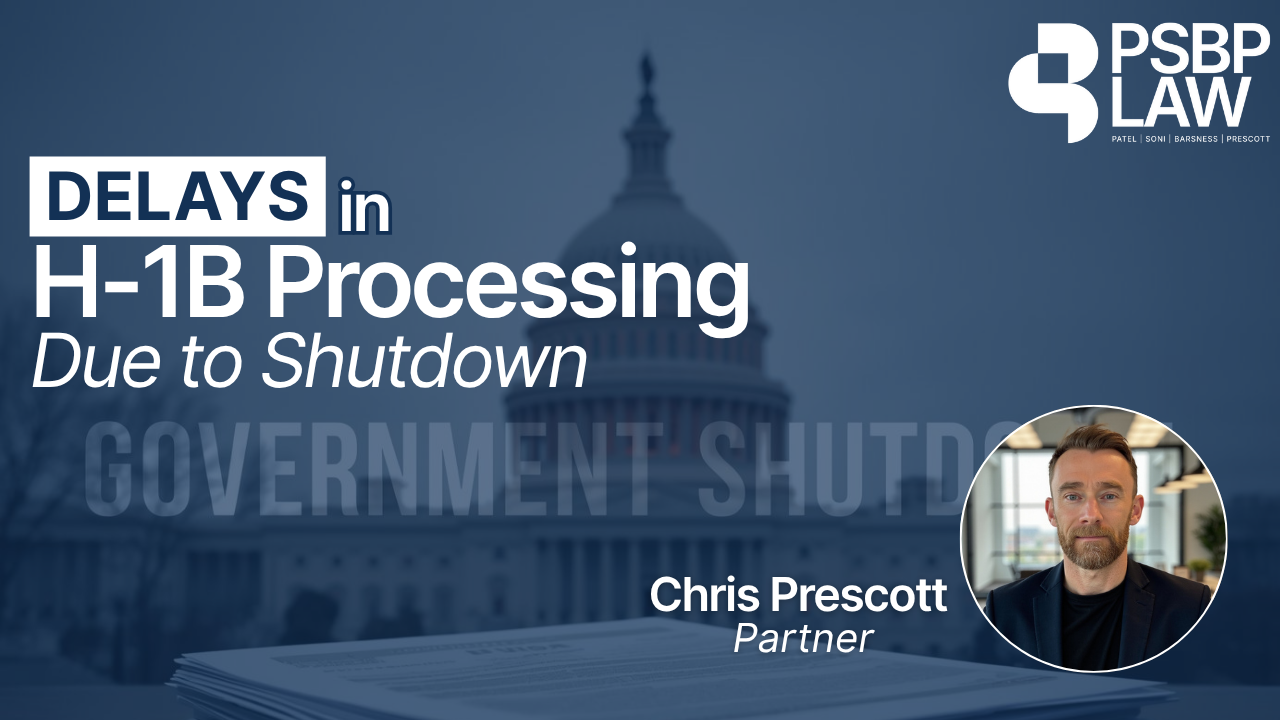The current government shutdown has created significant uncertainty for employers and foreign workers navigating the H-1B process. While the U.S. Citizenship and Immigration Services (USCIS) remains operational, other key agencies involved in the process, particularly the Department of Labor (DOL), have been directly affected, making it challenging for employers to move forward with H-1B filings.
USCIS is Still Operating
USCIS is fee-funded, meaning it does not rely on congressional appropriations to continue its operations. As a result, it will continue to accept and process petitions during the shutdown, including H-1B filings. However, petitioners face a major hurdle even before reaching that step.
DOL Closure Means No LCAs
Before filing an H-1B petition, employers must obtain a certified Labor Condition Application (LCA) from the Department of Labor. During the shutdown, the DOL’s FLAG system used to submit LCAs is inaccessible. Without an approved LCA, employers cannot properly file an H-1B petition.
Filing Without an LCA Is Risky
Some employers may be tempted to file an H-1B petition without a certified LCA to meet deadlines or preserve status. However, there are no official reports confirming that USCIS will accept or hold such petitions. The danger is that the petition could sit in a mailroom unprocessed, and once the government reopens, the employer may not know whether USCIS has receipted or rejected the case—potentially requiring a costly and time-sensitive re-filing. Even if USCIS accepts the petition, it could later deny it due to the missing LCA.
Recommended Approach
The safest course of action is to wait until the government reopens and the DOL resumes LCA processing. Once the system is back online, expect a backlog and longer processing times as employers rush to submit pending LCAs.
“Exceptional Circumstances” Provision
USCIS has indicated that it will treat a government shutdown as an “exceptional circumstance” beyond the petitioner’s control for certain filings, such as extensions or change-of-status cases. This means that employers and beneficiaries should be able to file extensions, even late and receive backdated approvals in the Nunc Pro Tunc sense.
H-1B Transfers Are a Major Concern
Unfortunately, this guidance does not clearly cover H-1B transfer cases. Employees seeking to switch employers cannot begin work with the new company until the H-1B transfer has been properly filed, something that cannot occur without a certified LCA. For now, H-1B workers are strongly advised not to change jobs until the government reopens and the LCA process is restored.
60-Day Grace Period Cases
One narrow exception may apply to individuals nearing the end of their 60-day grace period following termination. In these rare situations, it may be necessary to file the H-1B petition transfer without a certified LCA to preserve status, acknowledging the risk that the petition may not be accepted or could be denied later.
Conclusion
The government shutdown underscores just how interconnected the U.S. immigration system is and how dependent H-1B employers are on multiple federal agencies working in sync. While USCIS remains open, the Department of Labor’s closure effectively halts new H-1B filings, leaving employers and foreign workers in limbo. Until the DOL resumes operations, the most prudent approach is patience and preparation: gather documentation, draft petitions, and be ready to act quickly once the FLAG system reopens.
Employers should consult immigration counsel before taking any action, particularly in time-sensitive situations such as grace-period filings or urgent extensions. With careful planning and timely filing once the government reopens, most employers should be able to minimize disruption and move forward with H-1B petitions as soon as the process resumes.
If you have questions regarding the above, please e-mail PSBP Partner Chris Prescott at cprescott@psbplaw.com.
